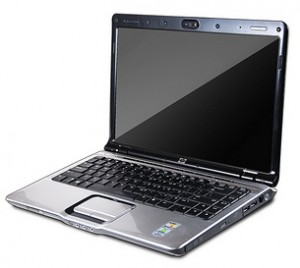Picking a new Windows laptop computer is a very personal and subjective task. Unlike a desktop computer that can be tucked neatly under a desk and hidden from sight, the laptop computer and its user form a very close personal bond. Individual preference, in this case, carries far more weight than forcing a specific brand or form factor on a staff person.
Below are some general categories and guidelines that can help inform the decision about which laptop to purchase.
I’ve found that in general smaller and lighter is preferred to a bigger screen. Internal DVD drives, while convenient, aren’t often used outside of the office. In the office adding a second monitor is a real productivity enhancer, while an external keyboard is often less useful than an external mouse. In that case getting a docking station or port replicator can help cut down on the clutter and make it easier to grab your laptop and go. We’re starting to see more laptops with touch screens, however they are the exception rather than the rule at this point.
General Recommendations
• Max out RAM – often very difficult to install later on
• Avoid integrated 3G/4G antennas – you’ll have more flexibility & choices if you use a mobile hotspot, although if you have a corporate account the built-in antenna will cut down on clutter.
• Go for a bigger battery – you’ll be happy you did
• Intel Core i5 processor – nice balance of price/performance
• Buy the extended warranty – laptops take a lot of abuse so get a good warranty that doesn’t require you to mail back your device for service
• 13” screen – unless you can really work small, go for a bigger screen
• Windows 7 Pro, 64 bit – Business users will find that there aren’t a lot of benefits with going to Windows 8 right now, especially if you don’t have a touch screen on your laptop.
• SSD Drive – a premium, but it’ll help to speed up the computer & improve battery life. 128GB min, although you’ll be a lot happier 2 years from now with a 256 GB Drive.
• 3 year replacement – laptops are relatively slower than desktops and get used harder. Plan on a 3 year replacement cycle
“Executive Laptops” – small, lightweight, premium on battery life
• MacBook Air – arguably the best Windows laptop out there since you can dual boot it with Boot Camp. Great battery life (12 hrs!), beautiful form factor and you’ll look cool in any coffee shop. You’ll need to get some adapters to be able to use most office LCD projectors. If you are interested in buying a MacBook, check out the article Looking for a new MacBook laptop? by Johan Hammerstrom.
• Lenovo X1 Carbon – a long name, but a solid performer, 14” screen, bigger keyboard than the Mac and still provides 8 hrs of battery life. A touch screen version is also available
• Dell Latitude 6430u – Dell’s Ultrabook, utilitarian, 14” screen but mediocre battery life compared to the others in this category
“Workhorse Laptops” – bigger screens, lower prices and solid performance
• Dell Latitude 6430 – 14” screen, appealing price, very customizable, good support and warranty coverage.
• Dell Latitude 6540 – 15.6” screen, a workstation replacement, full sized keyboard, optional 128bit video card
• Lenovo T430 – 14” screen, a little under 5 lbs, integrated DVD

